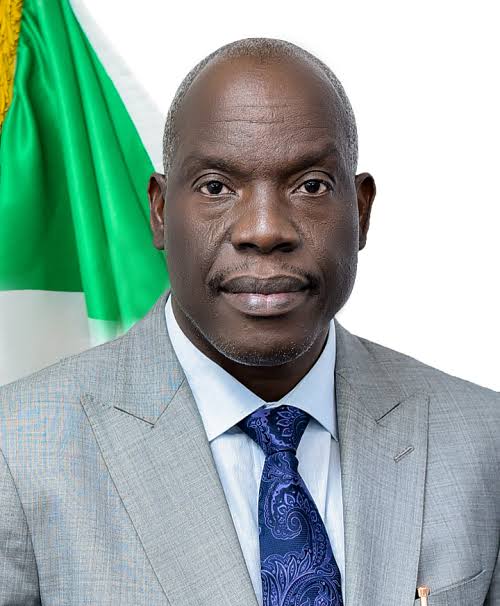Listeners:
Top listeners:
-
play_arrow
104.9FM Best rock music demo
-
play_arrow
Demo Radio Nr.1 For New Music And All The Hits!
-
play_arrow
Demo Radio Techno Top Music Radio
-
 play_arrow
play_arrow
Police Commissioner Launches Weapon and Riot Control Training for FCT Officers Democracy Radio
PEALS 2025: NUPRC Boss Reaffirms Drive for Resilient Oil and Gas Sector

By Chinedu Echianu
The Chief Executive of the Nigerian Upstream Petroleum Regulatory Commission (NUPRC), Engr. Gbenga Komolafe has pledged the Commission’s commitment to strengthening Nigeria’s oil and gas industry through bold reforms, strategic investments, and sustainable practices.
Komolafe made the pledge while delivering his keynote address at the Day 2 of the 2025 PENGASSAN Energy and Labour Summit (PEALS), held from August 20–22 at the Transcorp Hilton, Abuja. The summit, themed “Building a Resilient Oil and Gas Sector in Nigeria: Advancing HSE, ESG, Investment, and Incremental Production,” brought together key stakeholders, policymakers, labour leaders, and industry experts.
The NUPRC boss described the gathering as a “trusted marketplace of ideas” where government, labour, and industry can collectively shape Nigeria’s energy future. He noted that the summit comes at a defining moment when global energy transition, technological advances, and geopolitical dynamics are reshaping the oil and gas landscape.
“While hydrocarbons will continue to meet more than half of the world’s primary energy needs by mid-century, renewables are projected to supply nearly 90% of new electricity generation by 2030,” Komolafe stated, stressing the need for Nigeria to balance energy security with preparations for a low-carbon economy.
Highlighting Nigeria’s proven reserves of 37.28 billion barrels of crude oil and 210.54 trillion cubic feet of gas, Komolafe emphasised that the country must be “resource-responsible” by harnessing hydrocarbons with world-class efficiency while investing in cleaner alternatives.
He outlined several NUPRC-led initiatives designed to boost production and attract investment, including the implementation of the Petroleum Industry Act (PIA) 2021 and recent presidential executive orders that cut contracting cycles from 36 months to 6 months.
On incremental production, he revealed that Nigeria’s oil output has grown from 1.46 million barrels per day in October 2024 to 1.8 million barrels in August 2025, with a target of hitting 2.5 million barrels per day by 2026. According to him, deepwater cluster development strategies and reactivation of dormant fields are already unlocking new production potentials.
On sustainability, Komolafe said the NUPRC’s Upstream Decarbonisation Framework is designed to eliminate routine flaring by 2030, cut methane emissions by 60% by 2031, and monetise Nigeria’s vast gas resources through initiatives such as the Decade of Gas, the Gas Flare Commercialisation Programme, and the Presidential CNG Initiative.
He also underscored the importance of human capital in driving the sector’s resilience, describing Nigerian workers as the backbone of the industry. With nearly 70% of Nigeria’s population under 30, Komolafe said the country has an opportunity to train and export energy talent to meet global demand for over 20 million new energy jobs expected by 2030.
“Resilience is not built by chance but by choice. Today, we must choose to invest in our people, drive innovation, safeguard the environment, and forge enduring partnerships,” he charged.
Komolafe commended PENGASSAN for convening the summit and urged participants to seize the opportunity to develop actionable strategies that will secure the future of Nigeria’s oil and gas industry amid global transition pressures.
Written by: Democracy Radio
Similar posts
Copyright Democracy Radio -2024


